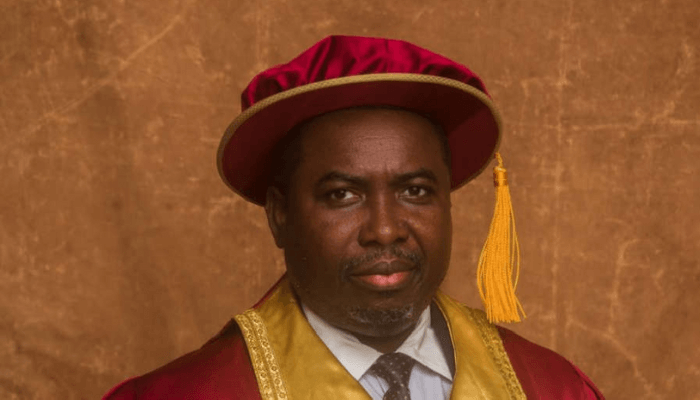INEC’s new chairman faces voter confidence test
President Bola Tinubu on Thursday appointed Joash Ojo Amupitan (SAN) as the new chairman of the Independent National Electoral Commission (INEC), ushering in a new era for Nigeria’s electoral body amid rising calls for reforms.
Amupitan, 58, hails from Ayetoro Gbede in Ijumu Local Government Area of Kogi State. A professor of law at the University of Jos and an alumnus of the same institution, he specialises in Company Law, Law of Evidence, Corporate Governance, and Privatisation Law. He became a Senior Advocate of Nigeria in 2014.
His appointment comes at a critical period of Nigeria’s democracy, following widespread criticism of the 2023 general elections. The polls were marred by controversies over result transmission failures, logistical delays, and allegations of partisanship. Recent off-cycle gubernatorial elections have also faced similar challenges.
Mahood Yakubu, former chairman, introduced several reforms during his 10-year tenure in office, including Bimodal Voter Accreditation System (BVAS) and the INEC Result Viewing Portal (IReV), but the success of these devices appears to be derailed by politicians who have mastered how to manipulate the devices, throwing recent elections into chaos and disputes.
Read also: Council of State approves nomination of Amupitan as INEC Chairman
A recent example was the Edo State governorship election, where disputes arose over the collation of results at the state headquarters, rather than the designated local government collation centres.
With the 2027 general election approaching, public confidence in the commission remains low. Political party defections, early campaigns, and heightened tensions have further put INEC under pressure to show neutrality and independence.
Public trust in elections
Stakeholders say the immediate task before Amupitan is to rebuild public trust and restore confidence in the electoral system.
“The former chairman started well, especially with the technological innovations but politicians later defeated him to his game. Our electoral system need total overhaul,” Temitope Musowo, public policy expert and lecturer, told BusinessDay.
“Amupitan must assess the performance of technology in the conduct of elections in Nigeria and see where there are lapses to improve the system.
“It is either he is ready to work or he should decline the offer. A lot of people don’t want free and fair election in Nigeria because they are not popular,” he noted.
According to him, the new chairman must immediately show Nigerians that he is not a political appointee but a servant of the constitution and must work for Nigerians.
Similarly, Amina OJei, political analyst at the Centre of Electoral Reforms, called for immediate reforms in INEC, saying that they must be swift, inclusive, and transparent.
“INEC must lead the charge in collaborating with the National Assembly and the civil society to close legal loopholes that enable malpractices,” Ojei said.
Experts also expect Amupitan to drive amendments of the Electoral Act, particularly in areas dealing with result collation and electronic transmission.
“Strengthening electronic transmission from polling units will promote transparency and accountability,” said Kunle Okunade, another political analyst. “That’s how to rebuild public trust in our electoral process.”
Source of funding for INEC should change
Many stakeholders say that any move to give INEC autonomy must start with its source of funding. There are reports that the commission activities have been affected by limited funding recently. Such was seen in the 2023 poll where not all the money budgeted for the general election was released by the executive.
Speaking some days ago at a webinar on electoral reform, Obiageli Ezekwesili, former education minister, had called for urgent financial and operational autonomy for INEC to function effectively, saying that the electoral body should be funded directly from the consolidated fund.
Challenge of restoring faith in BVAS and IReV
With technology now central to Nigeria’s electoral process, the new chairman faces the challenge of restoring faith in BVAS and IReV, both of which experienced significant malfunctions during previous elections.
Pundits say digital integrity, cybersecurity, and operational reliability will be critical in the 2027 general election.
Ezekwesili had demanded the strengthening of the results collation mechanism, change in the procedure for the appointment of INEC commissioners, strong penalty against electoral offenders, among other reforms, ahead of 2027.
Read also: INEC extends FCT ward-level voter registration by four days
She had called upon the National Judiciary Commission to discipline judges who undermine the electoral system by giving frivolous rulings and colluding with politicians.
“Case exceeding the timeline should not be allowed. We need specialised courts for election cases in Nigeria urgently and judges should be randomly picked for these cases to check manipulation,” Ezekwesili said.
Youth disillusionment, poor voter turnout
The 2023 elections witnessed a surge in youth voter registration, driven mainly by political movements on social media.
However, post-election surveys indicated a wave of disillusionment among young Nigerians, many of whom felt their votes did not count.
Voter turnout has been in steady decline in Nigeria over the last decade, and there are fears it would will be worse in 2027.
Political analysts say Amupitan must rise to restore Nigerian youths’ confidence in the electoral system, which will be key to increasing voter turnout in 2027.
“To gain youth confidence, the election umpire at this moment needs to work on the human and material logistics during the election day,” Okunade noted.

